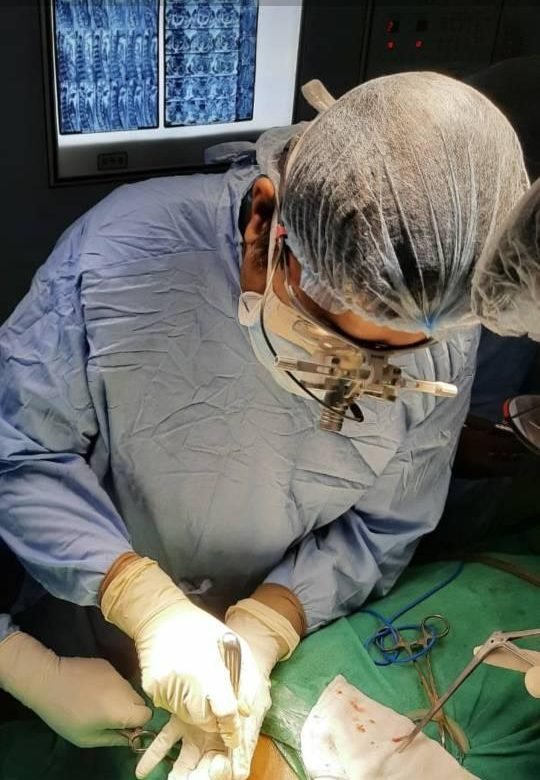Dr. Paresh Bang | Matruchhaya Spine Clinic
Meet Our Doctor
Dr. Paresh Bang
Consultant Spine Surgeon

Sciatica Specialist In Chandrapur

Sciatica Specialist
A sciatica specialist is a healthcare professional who diagnoses and treats sciatica, a condition caused by irritation or compression of the sciatic nerve. This can result in pain, numbness, tingling, or weakness that radiates from the lower back down through the buttocks and legs.
Some risk factors can impact the likelihood of getting sciatica, including, but not limited to age, obesity, diabetes, and prolonged periods of sitting.
The best ways to prevent getting sciatica is to exercise on a regular basis, use proper body movements (especially when lifting heavy loads), and maintain good posture as you sit. You can also improve your spinal health by being under regular chiropractic care to ensure no nerves are being pinched in your back and neck.
Types of Sciatica Specialists:
Primary Care Physician (PCP): A PCP is often the first point of contact and can diagnose sciatica. They might recommend treatment like physical therapy, medications, or refer you to a specialist.
Chiropractor: Specializes in spinal adjustments to relieve pressure on the sciatic nerve, aiming to improve nerve function and alleviate pain.
Physical Therapist: Focuses on exercises and stretches to improve mobility, strengthen the muscles supporting the spine, and relieve nerve pressure.
Orthopedic Surgeon: Specializes in musculoskeletal issues, including spinal conditions. They can provide surgical options if conservative treatments fail.
Neurologist: Focuses on the nervous system and may be consulted if there are concerns about nerve damage or if symptoms are severe.
Pain Management Specialist: Trained in various techniques to manage chronic pain, including injections like epidurals, nerve blocks, or medications.
Neurosurgeon: In cases where surgery is needed to relieve pressure on the sciatic nerve, a neurosurgeon may be involved. They specialize in surgeries involving the nervous system.
Treatment Options
Medications: NSAIDs, muscle relaxants & nerve pain medications.
Physical Therapy: Exercises to relieve pressure and strengthen muscles.
Chiropractic Care: Spinal adjustments to reduce nerve compression.
Injections: Steroid injections reduce inflammation and pain.
Surgery: In cases of severe or persistent sciatica, surgical intervention (e.g., discectomy, laminectomy) might be necessary.
Lifestyle and home remedies
Sciatica usually responds to self-care measures for most people. Rest may help relieve the problem however, remaining inactive will worsen symptoms.
Other self-care treatments that may help include:
- Apply a cold pack to the painful area as possible as for up to 20 minutes at one time. You can use an ice pack or package of frozen peas wrapped in clean towel.
- After 2 to 3 days, apply heat to the places that ache. Apply hot pack, heat lamp, or heating pad on the lowest setting. For chronic pain, try alternating between hot or cold packs.
- Stretching exercises for the low back are beneficial. hold stretch for at least 30 seconds. Do not jerk, bounce or twist while stretching.
Meds. - Over-the-counter pain relievers such as ibuprofen (Advil, Motrin IB, others) and naproxen sodium (Aleve) may help some individuals with sciatica. Follow the dosing instructions on the package.Contact Us
Alternative medicine
Alternative therapies sometimes used for low back pain include:
- Acupuncture. Acupuncturists insert hair-thin needles into the skin at specific points throughout the body. Some studies indicate that acupuncture can help back pain, while others found no benefit.
- Chiropractic. Chiropractors can make spinal adjustments and manipulations to restore spinal movement that can be decrease pain.
- Massage therapy. Massages can loosen the muscles behind and in the hips that may be tense or spasm-producing.Visit Our Hospital
